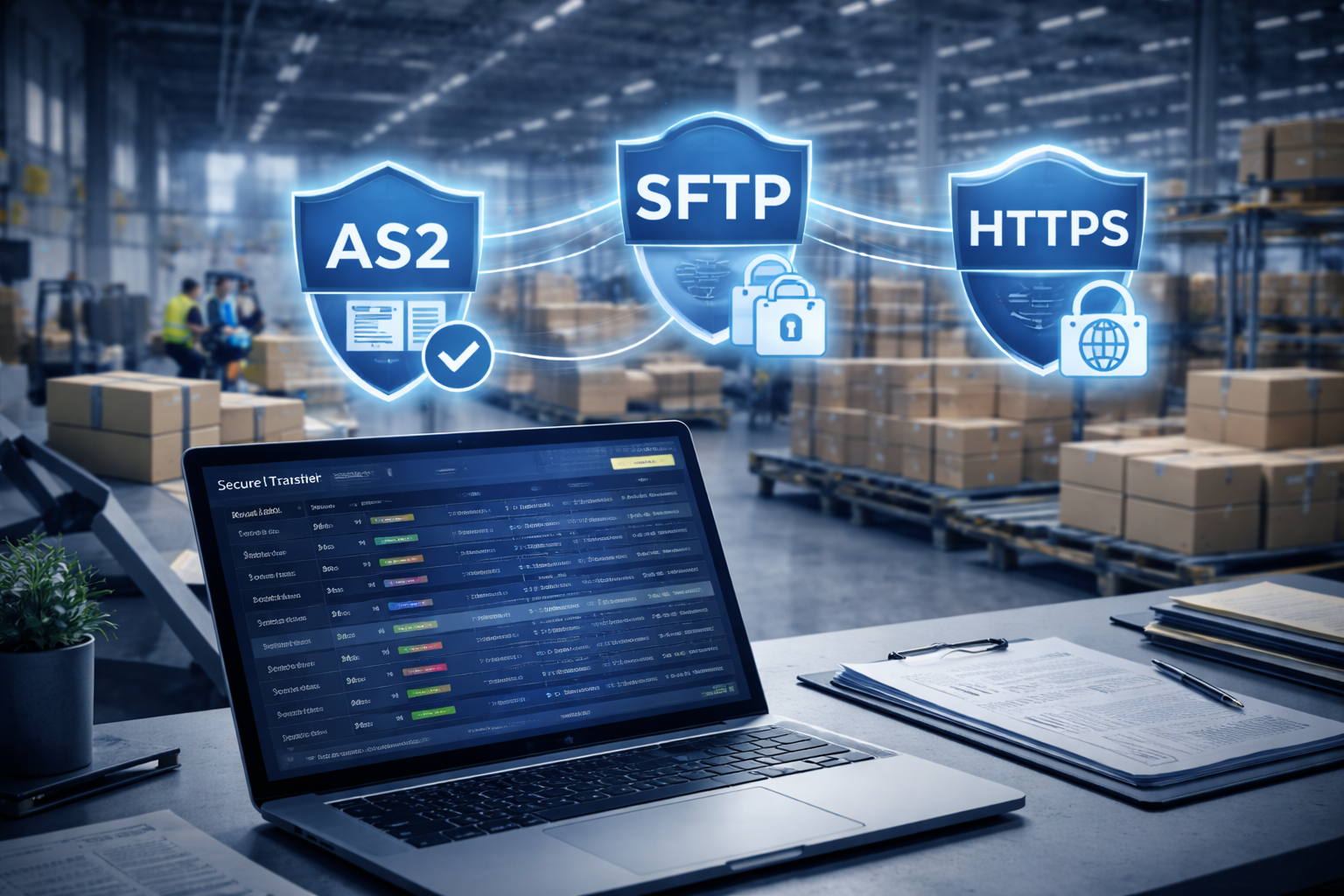DISCOVER THE TOOLS YOU NEED FOR PROCESSING YOUR EDI DATA
When businesses are looking to implement EDI, one of the common questions is whether or not they need an EDI translator. Since EDI can seem very confusing at first, it's a fair question to ask.The short answer is yes if you plan to use EDI for B2B communication, you will need an EDI translator. Data translation is one of the critical aspects that sets EDI apart from other technology used in B2B transactions, such as email or fax machines, for example.In this blog post, we're going to explain what an EDI translator is, why EDI translation is necessary, and show you how to completely avoid the hassle of buying and installing EDI translation software on your own.
WHAT IS AN EDI TRANSLATOR?
When people refer to EDI software, they are most often referring to software that translates EDI data. An EDI translator processes EDI data back and forth from a format compatible with specific software to regulated EDI formats known as EDI standards.With the use of an EDI translator, one company can take a document from their custom in-house software and convert it to an EDI standard which they can then send to another business who will convert the EDI standard into a format that works with their enterprise-specific solution.Here is the step-by-step process of sending an EDI transaction:
1 .Extract data from original software for EDI conversion
2.Create the outbound EDI message
3.Format the message to the correct EDI standard
4.Send the transaction to the receiving trading partner
The receiver's EDI translator repeats a similar process when accepting the EDI transaction and formatting the data for their in-house software.EDI translators come in different forms – you can hire a developer to design the software for you or you can purchase one of the many existing EDI solutions on the market. EDI translators are available for Windows, Mac OS, Unix, AS400, and several other operating systems.
WHY EDI TRANSLATION IS IMPORTANT
Without an EDI translator, it would be extremely complicated to exchange business documents with a wide variety of companies – especially if you wanted to exchange data with businesses in different industries and different countries. The conversion of data from custom formats to standardized formats is one of the primary benefits of using EDI.Manual EDI translation is possible, but it isn't practical or cost-effective for scaling a business. This is why there are so many EDI translators on the market.However, one thing you want to look out for in your EDI software is how much work you have to do to get your data translated. Too many EDI translators simply provide a tool that makes manual translation slightly easier, rather than do the work on your behalf.Fortunately, there's a better solution.
WHY YOU DON'T NEED A SEPARATE EDI TRANSLATOR AS A BOLD VAN CUSTOMER
BOLD VAN provides a complete EDI solution that requires zero hardware or additional software to exchange EDI messages with any organization in the world. Our cloud-based EDI solution translates your EDI data into the appropriate formats for you.BOLD VAN supports:
- UN/EDIFACT (EDIFACT)
- ASC X12 (ANSI X.12)
- TRADACOMS
- ODETTE
- VDA
Plus, we support all versions of EDI. You can learn more about the most common EDI transaction sets here.BOLD VAN's EDI solutions allow you to completely replace your in-house EDI system or avoid the costs and hassle of setting one up in the first place. In addition to EDI data translation, we also handle EDI implementation, trading partner onboarding, and we'll ensure you are EDI compliant for all of your trading partners.Best of all, BOLD VAN offers the most sensible pricing in the EDI industry — Trading Partner Pricing. Instead of paying a fee for every single kilocharacter you exchange, we charge by the number of trading partners you have and give you EDI data.Learn more about our Trading Partner Pricing!


